Armenia's unhealthy healthcare system
This article was first published in April last year. Valery Manucharyan has undergone medico-social examination twice since that publication, but nothing has actually changed – the commission’s conclusion has remained the same.
Valery Manucharyan, 26, from Goris, has been struggling in vain for the restitution of his disability status for four years already. The most regretful and sad thing of all, is how he became disabled.
Valery had been receiving a disability allowance until March 2012, when the ‘Second Medical and Social Expertise Agency’ no longer confirmed that his health condition corresponded to the third degree of disability. The reason was that the head of the commission had noticed a callus on his hand and said: ‘Manucharyan is able to work, therefore, he cannot be awarded the disability allowance’.
“I had such a terrible disease that the amount they paid me as a disabled person was hardly enough to buy even half of the medicine I required. But because of a single callus I was deprived even of that miserly sum,” said Valery.
He appealed the Commission’s decision, demanding that his documents should once again be looked over and that he should be checked by experts.
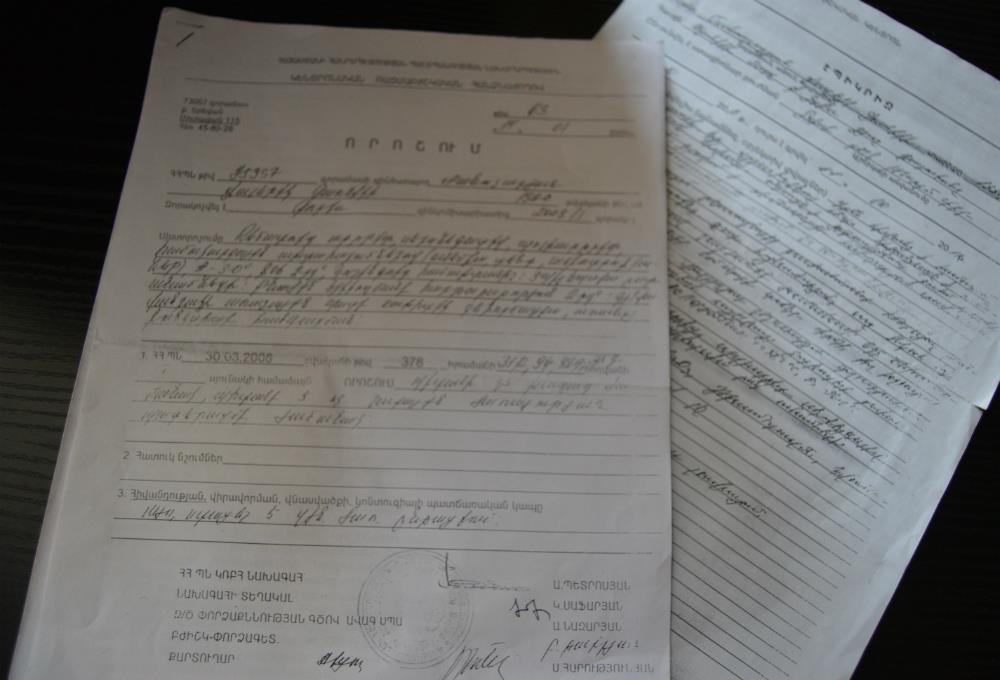
The commission convened for a second time: this time the commission was from Yerevan. “I was sent to have a spinal X-ray done. When I entered the room, they realized that I was not ABLE to pay and told me that the X-ray examination was no longer required,” recalls Valery.
He was notified in advance that ‘it is customary’ for his first allowance to be given to the commission, so that he will receive the allowance himself in the future. Having learnt that Manucharyan’s allowance consisted of a mere AMD 11 600 (less than USD 25), he was informed that he needed to pay AMD 30 000 (about USD 60).
“The transaction was simple: I refused to pay them the required amount, and they deprived me of disability status,” said Valery.
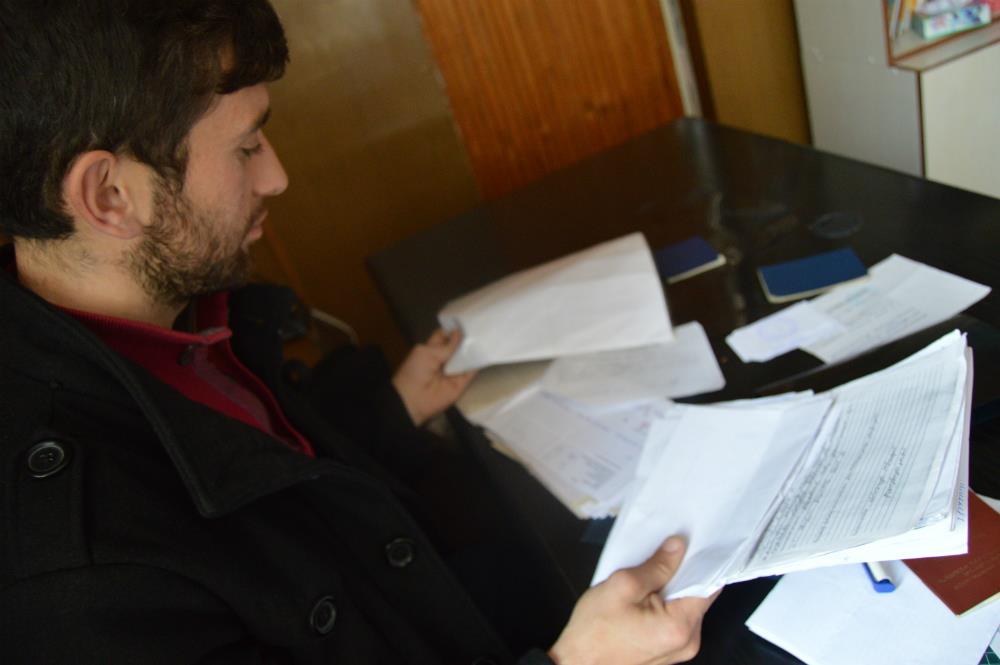
In Armenia, outpatient treatment is free of charge. In other words, any citizen can undergo medical examinations in the outpatient clinic, a primary health or medical center, and get first aid free of charge.
This is guaranteed by a government decree, whereby approximately AMD 27 billion (approx. USD 60 million) has been allocated for these purposes from the 2016 state budget.
Although many people are well aware that medical aid should be free of charge, some people still present doctors with some token of charity. When asked why, the typical answer is: ‘Nothing is free in this country: if you don’t pay, the tests won’t be carried out normally and/or you won’t be cured’.
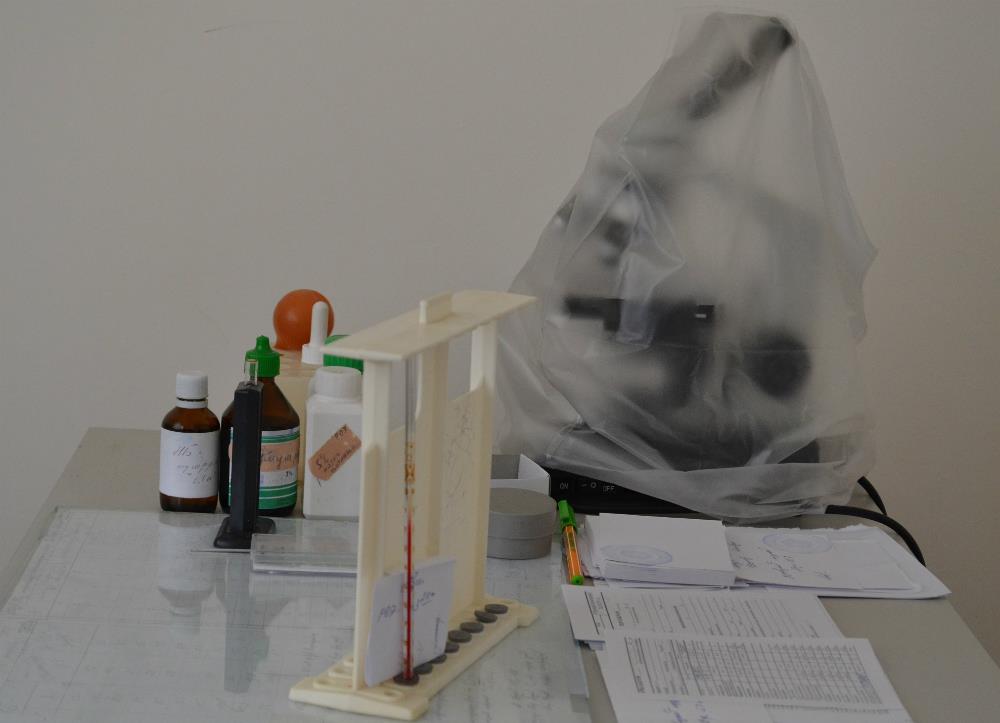
People with disabilities spend most of their money on outpatient clinics. In order to maintain disability status, they have to go in front of medical and social experts annually for a period of seven years. They are required to produce the results of examinations conducted over the past six months to the experts.
“Every year you are required to undergo a mandatory examination, everything from an eye check-up to an ECG (electrocardiography), regardless of the degree of your disability. You pay at least AMD 2 000 per doctor, in total about AMD 30 000. Besides this, if you have to go back in front of medical and social experts and you haven’t paid, you will be deprived of the allowance,” said one of the ‘visitors’ to the clinic, a person with a disability who preferred not to be named.
If one unconditionally believes these words, it turns out that every disabled person spends on average two months allowance on bribes over the course of a year.
Very few people are ready to speak openly about the violations in the healthcare sphere. We know that no one is immune from disease, and you may have to return to the very doctor that you complained about.
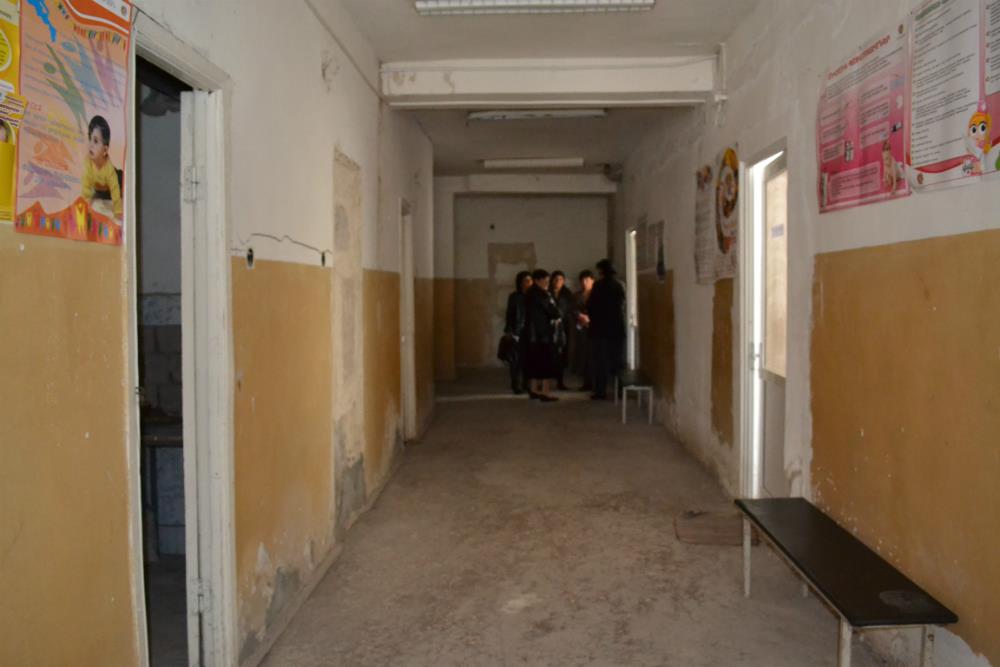
Valery is one of the few who did not follow this unspoken rule and even appealed to the Medical and Social Expertise Department at the Ministry of Health of Armenia. However, he was out of luck there too: the examination in Yerevan was conducted by the same commission as before and their decision remained unchanged.
Valery decided to take the stand for the violation of his rights in court, hoping to restore justice. “All of my friends were against it, saying my efforts were doomed to failure, but I am not going to give up that easily – I will keep fighting to the end.”
Valery Manucharyan filed a lawsuit against the Goris Medical and Social Expertise Agency with the Administrative Court, but it was not accepted on the pretext that the documents were inaccurately compiled. However, that did not make the young man stop. He appealed to the Administrative Court of Appeals of Armenia and the case was brought to the Administrative Court again.
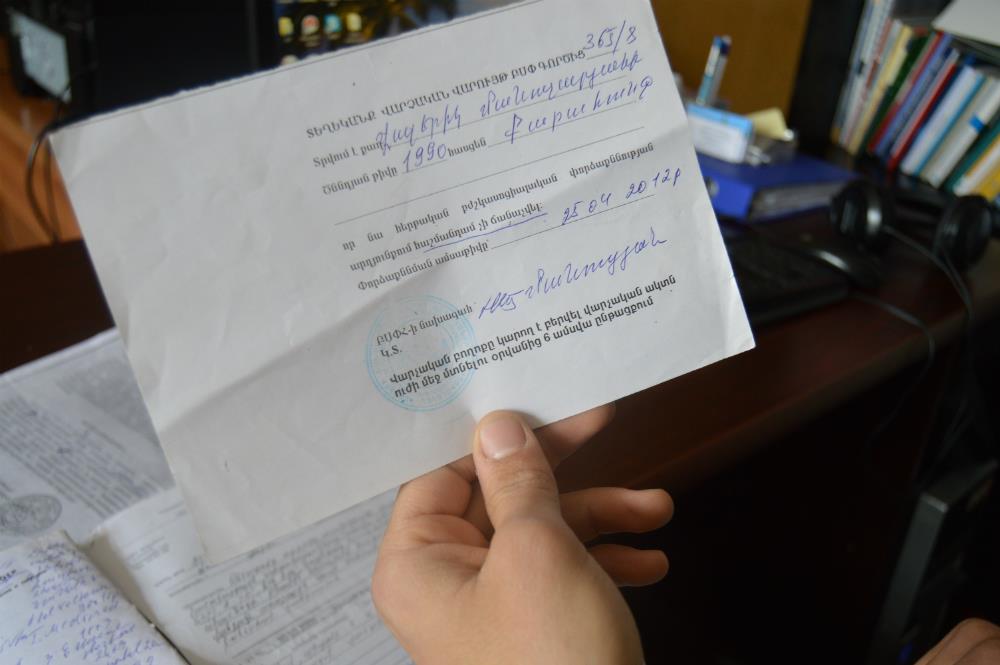
For more than two years, the hearings were constantly postponed about which Valery learned right in the courtroom. “Every time I had to cover 250 kilometers to get to Yerevan to turn up in court, and it was only there I learned that the judges were on vacation or that the hearing had been postponed – I never received any notifications,’ Valery said disappointingly.
Each time he had to spend AMD 10 000 (USD 20) just to travel there, which is almost his entire monthly allowance, to say nothing of overnight accommodation and food expenses.
Before the court delivered its judgment, Valery had undergone another examination at the Yerevan-based ‘Third Medical and Social Expertise Agency.’ His blood pressure was taken, and he was issued with the the conclusion: unable to be granted disability status.
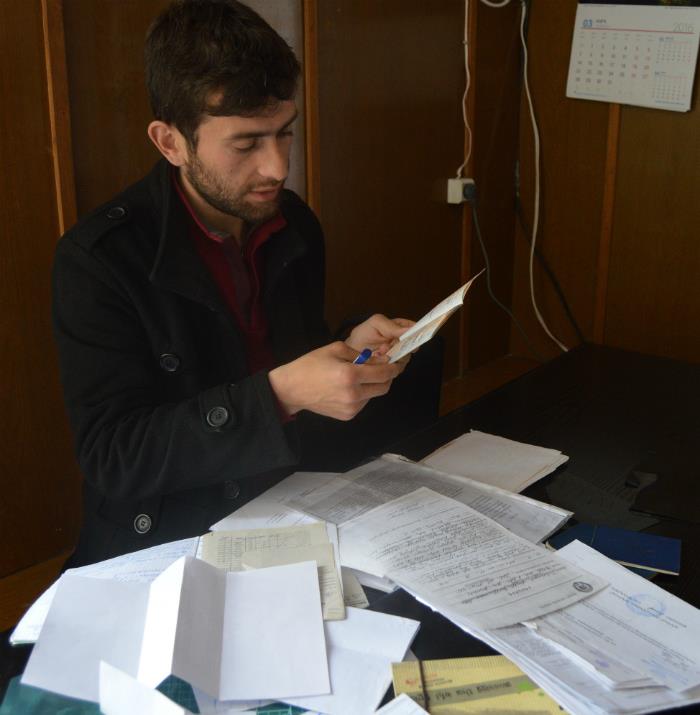
It is noteworthy that as it is pointed out in the conclusion, ‘all presented medical documents were studied. In addition, the medical experts conducted detailed operational research’.
Based on this examination, the Administrative Court ruled in favor of the Medical and Social Expertise Agency.
“The amazing thing is that they can issue a conclusion just on the basis of a blood pressure test,” says the young man.
Valery’s health condition is continuously getting worse: the inflammation of his joints are getting more severe each day – it’s becoming more difficult for him to move. In addition, he suffers from chest deformity and cardiac arrhythmia.
“Sometimes I cannot get out of bed due to the pains in my joints. I often undergo intravenous therapy, but I cannot get regular treatment due to my financial problems,” say the young man, pointing to a heap of papers with the results of tests that, as he puts it, ‘can be compiled into a voluminous book’.
“It’s not the AMD 11 000 that is important for me, but rather the fact that as a military man with a disability, I was entitled to get free examinations and, if necessary, medical treatment in a hospital. Whereas now, as I desperately need medical treatment, there is nothing I can do,” says Valery.
Published: 22.04.2016




















